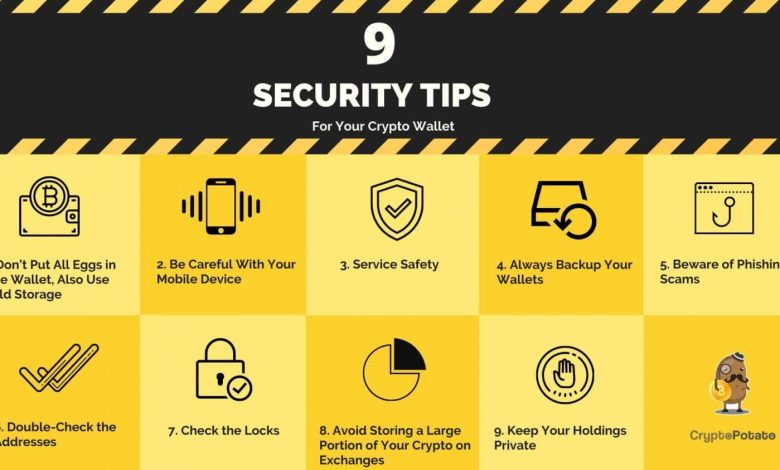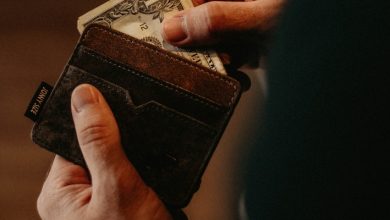How to Secure Your Crypto Assets on Exchanges

- Understanding the Risks of Keeping Crypto Assets on Exchanges
- Best Practices for Securing Your Crypto Assets on Exchanges
- Two-Factor Authentication: A Must-Have for Crypto Exchange Security
- Choosing the Right Exchange: Factors to Consider for Security
- Cold Storage vs. Hot Wallets: Which is Safer for Your Crypto Assets?
- Regularly Monitoring Your Exchange Accounts: Tips for Security
Understanding the Risks of Keeping Crypto Assets on Exchanges
When it comes to keeping your crypto assets on exchanges, it is crucial to understand the risks involved. While exchanges provide a convenient way to trade and store your digital currencies, they are also vulnerable to hacks and security breaches.
One of the main risks of keeping your crypto assets on exchanges is the potential for theft. If an exchange is hacked, there is a chance that your assets could be stolen. Additionally, exchanges are centralized targets for hackers, making them more attractive to cybercriminals.
Another risk to consider is the lack of control you have over your assets when they are stored on an exchange. When you deposit your crypto on an exchange, you are relinquishing ownership and control to the platform. This means that if the exchange experiences any issues, you may struggle to access or recover your assets.
Best Practices for Securing Your Crypto Assets on Exchanges
When it comes to securing your crypto assets on exchanges, there are several best practices you should follow to ensure the safety of your investments. Here are some key tips to help you protect your cryptocurrency holdings:
- Enable two-factor authentication (2FA): One of the most important steps you can take to secure your crypto assets is to enable 2FA on your exchange account. This adds an extra layer of security by requiring a second form of verification in addition to your password.
- Use a hardware wallet: Consider storing the majority of your cryptocurrency holdings in a hardware wallet rather than keeping them on the exchange. This significantly reduces the risk of theft or hacking.
- Regularly update your security settings: Make sure to regularly review and update your security settings on the exchange platform. This includes changing your password periodically and keeping your contact information up to date.
- Avoid using public Wi-Fi: When accessing your exchange account, avoid using public Wi-Fi networks as they can be vulnerable to hacking. Instead, use a secure and private internet connection.
- Be cautious of phishing scams: Be wary of any emails or messages asking for your exchange login credentials or personal information. Always verify the source before providing any sensitive data.
By following these best practices, you can significantly reduce the risk of unauthorized access to your crypto assets on exchanges. Remember that the security of your investments is in your hands, so take the necessary precautions to protect them.
Two-Factor Authentication: A Must-Have for Crypto Exchange Security
Implementing Two-Factor Authentication (2FA) is crucial for enhancing the security of your crypto assets on exchanges. 2FA adds an extra layer of protection by requiring users to provide two different authentication factors before gaining access to their accounts. This significantly reduces the risk of unauthorized access, even if a hacker manages to obtain your password.
Choosing the Right Exchange: Factors to Consider for Security
When it comes to securing your crypto assets on exchanges, choosing the right platform is crucial. There are several factors to consider when evaluating the security of an exchange. One of the most important aspects to look at is the exchange’s security measures. **Ensuring** that the exchange has robust security protocols in place, such as **two-factor authentication** and encryption, can help protect your assets from unauthorized access.
Another factor to consider is the exchange’s reputation. **Checking** reviews and **feedback** from other users can give you insight into the exchange’s track record when it comes to security. **Opting** for an exchange with a solid reputation for **security** can provide an added layer of protection for your assets.
Additionally, **consider** the exchange’s regulatory compliance. **Choosing** an exchange that complies with **regulations** can help ensure that your assets are protected by **legal** frameworks. **Regulated** exchanges are often subject to **regular** audits and oversight, which can help prevent **fraud** and **malpractice**.
It’s also important to **look** at the exchange’s **insurance** policies. Some exchanges offer insurance coverage for **customer** funds in the event of a **security** breach. **Opting** for an exchange with **insurance** coverage can provide **peace** of mind knowing that your assets are **protected**.
In conclusion, when it comes to securing your crypto assets on exchanges, **choosing** the right platform is key. By **considering** factors such as security measures, reputation, regulatory compliance, and insurance policies, you can help **protect** your assets from **potential** threats. **Taking** the time to **research** and **evaluate** exchanges can **go** a long way in **ensuring** the **security** of your crypto assets.
Cold Storage vs. Hot Wallets: Which is Safer for Your Crypto Assets?
When it comes to securing your crypto assets on exchanges, one of the key decisions you’ll need to make is whether to use cold storage or hot wallets. Both options have their own set of advantages and disadvantages, so it’s important to understand the differences between them before making a decision.
Cold storage involves storing your crypto assets offline, typically on a hardware wallet or a paper wallet. This method is considered to be one of the most secure ways to protect your assets from hackers and other online threats. Since the assets are not connected to the internet, they are less vulnerable to cyber attacks. However, accessing your assets stored in cold storage can be more cumbersome and time-consuming compared to hot wallets.
Hot wallets, on the other hand, are connected to the internet and allow for easier access to your crypto assets. While hot wallets are more convenient to use, they are also more susceptible to hacking and other security breaches. If the exchange that hosts your hot wallet is compromised, there is a risk of losing your assets. It’s essential to choose a reputable exchange with robust security measures in place to minimize this risk.
Ultimately, the decision between cold storage and hot wallets comes down to your personal preferences and risk tolerance. If you prioritize security above all else, cold storage may be the best option for you. However, if you value convenience and accessibility, a hot wallet could be more suitable. Whichever option you choose, it’s crucial to take proactive steps to protect your crypto assets and stay informed about the latest security practices in the industry.
Regularly Monitoring Your Exchange Accounts: Tips for Security
Regularly monitoring your exchange accounts is crucial for maintaining the security of your crypto assets. By staying vigilant and keeping a close eye on your accounts, you can quickly detect any suspicious activity and take action to protect your funds. Here are some tips to help you enhance the security of your exchange accounts:
- Set up two-factor authentication (2FA) to add an extra layer of security to your accounts. This will require you to provide a second form of verification, such as a code sent to your phone, in addition to your password.
- Use strong, unique passwords for each of your exchange accounts. Avoid using the same password across multiple platforms, as this can make it easier for hackers to gain access to all of your accounts.
- Regularly check your account activity and transaction history for any unauthorized or suspicious transactions. If you notice anything out of the ordinary, report it to the exchange immediately.
- Keep your exchange accounts up to date with the latest security patches and updates. This will help protect your accounts from known vulnerabilities and security threats.
- Avoid accessing your exchange accounts on public Wi-Fi networks or shared devices, as these can be more vulnerable to security breaches. Instead, use a secure and private internet connection when managing your accounts.
By following these tips and regularly monitoring your exchange accounts, you can help safeguard your crypto assets and minimize the risk of unauthorized access or theft. Remember, staying proactive and vigilant is key to maintaining the security of your investments in the volatile world of cryptocurrency.



